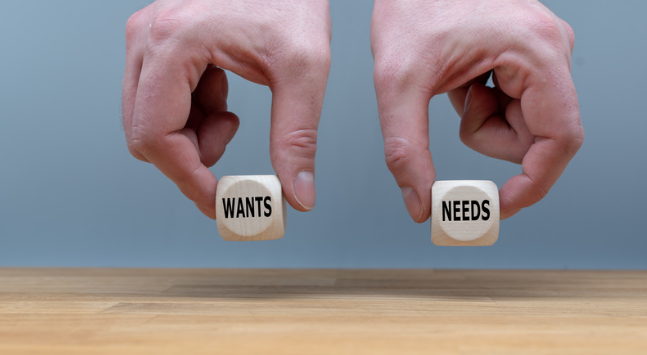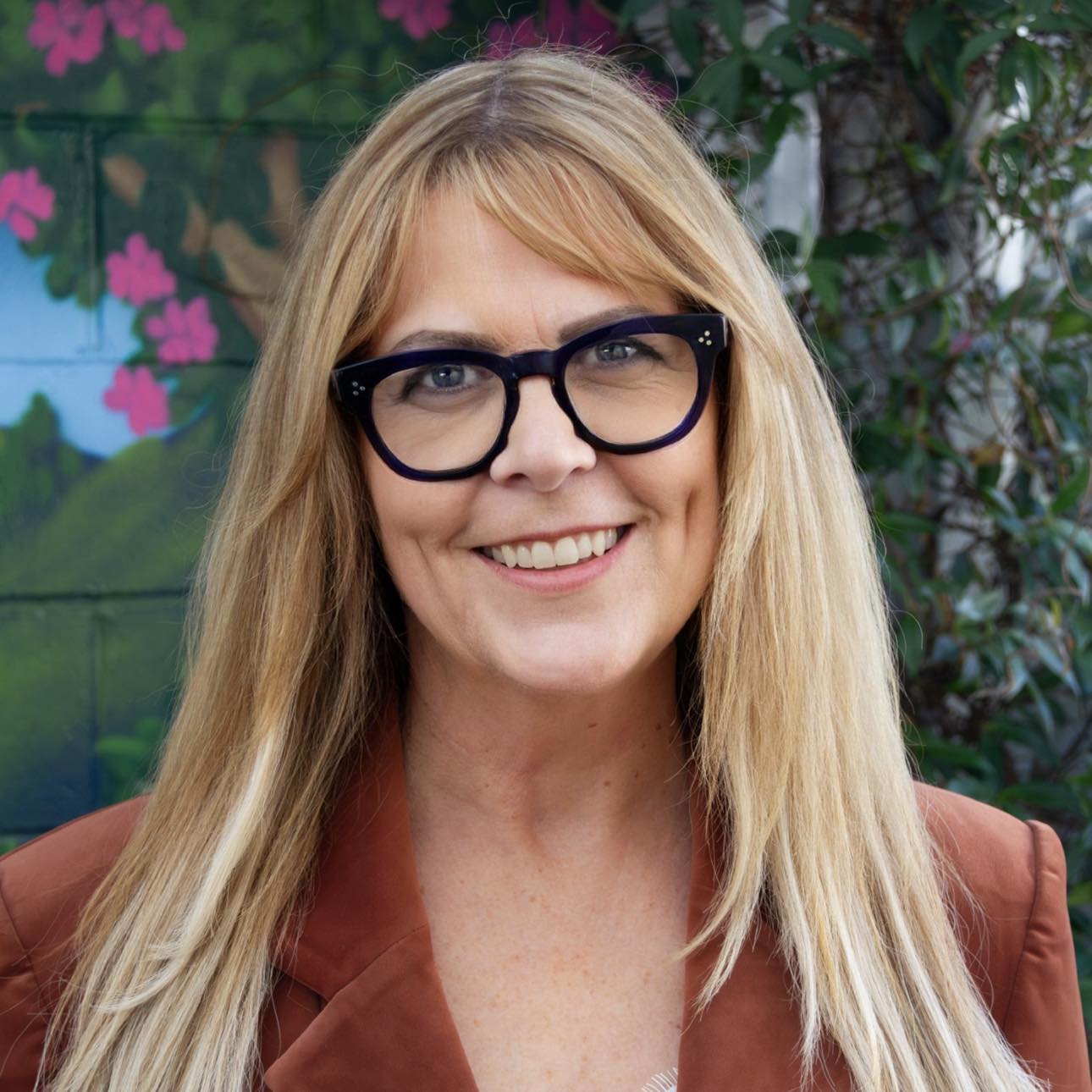
One of my favourite quick jokes in the Pixar movie “Inside Out’ is when they are on the Train of Thought and Joy knocks over crates of facts and opinions, then tries to tidy them up.
Joy: “Oh, no! These facts and opinions look so similar!”
Bing-Bong: “Ah, don’t worry about it. Happens all the time.” Puts an armful of everything into the crate labelled ‘facts.’
In my line of work, it is the needs and wants that can look so similar.
“Asking yourself, is this thing I’m about to buy a need, or a want” is really common ‘be good with money’ advice.
The first problem with this advice is that needs and wants aren’t always that easy to tell apart.
It doesn’t help that when we really want something, our brains can instantly produce at least 17 reasons why we need it.
And the opposite problem can also occur. Sometimes we can find it very hard to allow ourselves to either want something, or to allow ourselves to have the thing that we want. Especially after a sustained period of having to deny ourselves any wants at all, the idea of spending on something that isn’t absolutely necessary can feel less like freedom and more like the beginning of a free-fall.
When we’ve taken on the idea that (basic) needs can be (begrudgingly) fulfilled, but that all wants are a frivolous waste of money, we quickly get to the point where we’re living in deprivation.
We can all live like this for a while, especially if doing so allows us to achieve an important goal, or if we know it will end in a certain time frame. But living with constant deprivation can lead to acting out and overspending – a “Damn it, I’m worth it!” attempt at self-care.
What’s needed is a way to tell our true needs and wants apart. I’m yet to find a better way to do that than my favourite quote from Karen McCall:
A want, when met, entertains you.
A need, when met, sustains you.
Substituting wants for needs will eventually drain you.
When you identify the things that sustain you, that’s where your time, energy and money are best spent – on your deepest needs.
Over the next fortnight, take the time to notice the things you are denying yourself.
Instead of just dismissing the idea (“Far too expensive; can never do that; especially not right now!”) ask yourself how it would feel if you could have what you’re thinking of.
If the idea of getting a cleaner, or making a dental appointment, or having more than two work outfits, (or whatever it is) makes you feel happy, that’s probably a want.
If you get a deep sense of relaxation and relief at simply imagining having (whatever it is) – that’s a need. Figuring out how to meet that need (sometimes by spending little or no money) is a vital part of healthy behaviour with money.
To find out more about how Sarah helps her clients, check out her website: r2m.co.nz/about-sarah/



